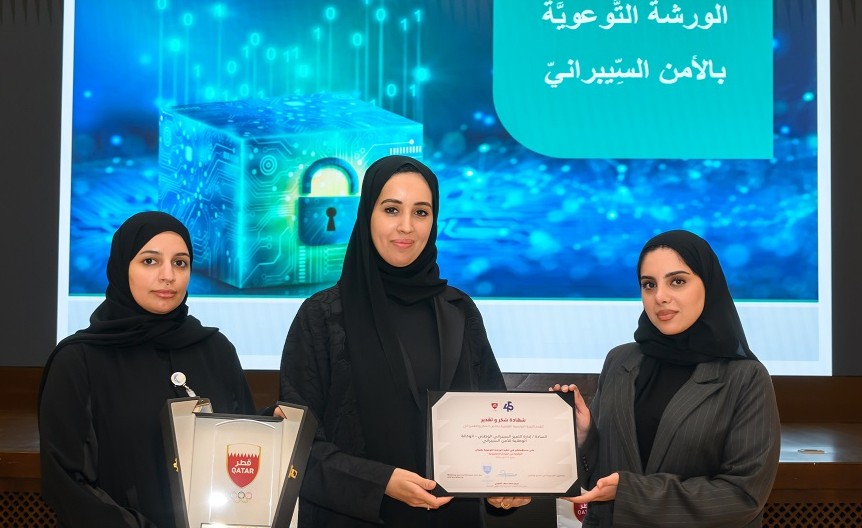The Qatar Olympic Committee recently organized an awareness workshop on preventing cybercrimes in collaboration with the National Cyber Security Agency. The workshop was attended by QOC employees from various departments, sections, and units, as well as representatives of sports federations. The main lecturer, Sherifa Al Khalidi, highlighted the importance of cybersecurity as a preventive measure against electronic attacks on individuals, networks, data, and systems. She discussed various cybercrimes such as fraud, theft, privacy violations, and data transfer, while also addressing protection measures against these attacks.
During the workshop, Al Khalidi presented models and examples of cybercrimes that target individuals, institutions, and organizations. She also emphasized the role of artificial intelligence in cybersecurity, discussing both its positives and negatives. The head of the training and development unit at the QOC, Noora Al Ahbabi, stated that the workshop aimed to enhance employees’ abilities to protect information and systems from electronic and cyber attacks, as well as understanding the consequences of such attacks. The QOC is dedicated to conducting educational and cultural workshops to elevate employee awareness regarding data protection procedures.
In her presentation, Al Khalidi shed light on the various types of cybercrimes that can have damaging effects on individuals and organizations. By providing real-life examples and outlining protection measures against such attacks, she equipped workshop attendees with valuable knowledge to safeguard against potential threats. Moreover, the workshop served as a platform to discuss the evolving landscape of cybersecurity and the increasing reliance on artificial intelligence for threat detection and prevention.
The workshop also highlighted the importance of employee awareness in protecting data, systems, and information within the committee. Noora Al Ahbabi emphasized the significance of staying informed about cybersecurity risks and implementing proactive measures to mitigate them. By empowering employees with the necessary knowledge and skills to defend against cyber threats, the QOC aims to strengthen its overall security posture and safeguard critical information assets from potential attacks.
In conclusion, the Qatar Olympic Committee’s collaboration with the National Cyber Security Agency underscores its commitment to promoting a culture of cybersecurity awareness and readiness. By organizing workshops and training sessions, the QOC seeks to enhance the knowledge and capabilities of its employees in combating cyber threats. As cybercrimes continue to pose significant risks to individuals and organizations, proactive efforts to raise awareness and implement protective measures are essential for safeguarding against potential attacks. The QOC’s initiative to prioritize cybersecurity education reflects its dedication to maintaining a secure and resilient environment for its operations.









